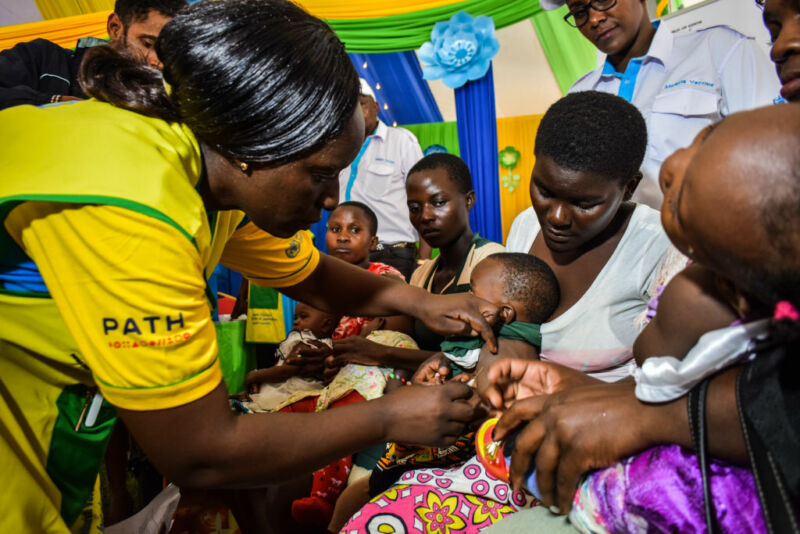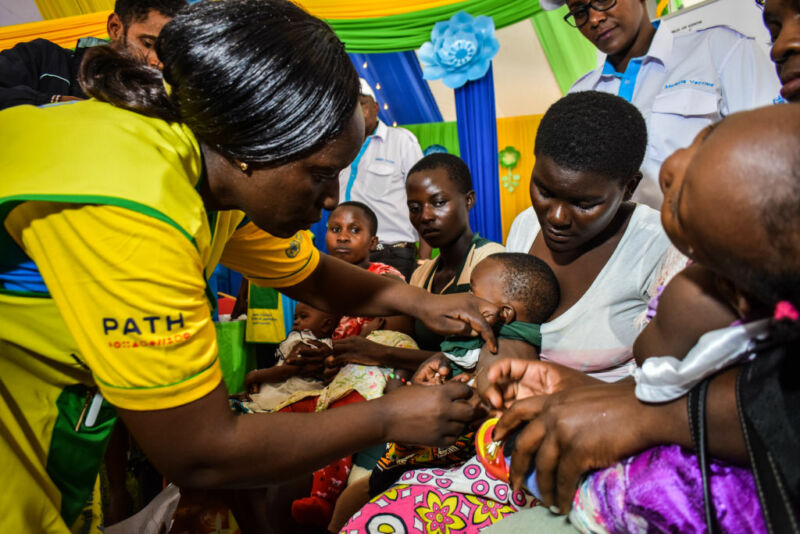
Enlarge / A health worker vaccinates a child against malaria in Ndhiwa, western Kenya. (credit: BRIAN ONGORO / Getty Images)
The incredible success of the COVID vaccines has been a triumph of biotechnology. But that triumph has in some ways obscured the amount of luck involved. We’ve been trying for decades to produce vaccines against HIV, but no amount of high-tech biology has gotten us one to date.
Malaria is another killer that has so far resisted vaccine efforts. But this spring has brought hope that progress is being made. Back in May, a small clinical trial of a relatively traditional vaccine showed an efficacy of over 70 percent. And this week, a paper describes a very different way of generating highly effective immunity to the malarial parasite.
Why is malaria so hard?
Malaria has resisted vaccination for a variety of reasons. One is that it’s not caused by just a single infectious agent. Instead, it’s caused by several related species in the Plasmodium genus. Plasmodium falciparum typically causes more severe illnesses and has thus been the target of most vaccine efforts. But even if we’re able to prevent infections by this strain, we won’t see the end of malaria.





